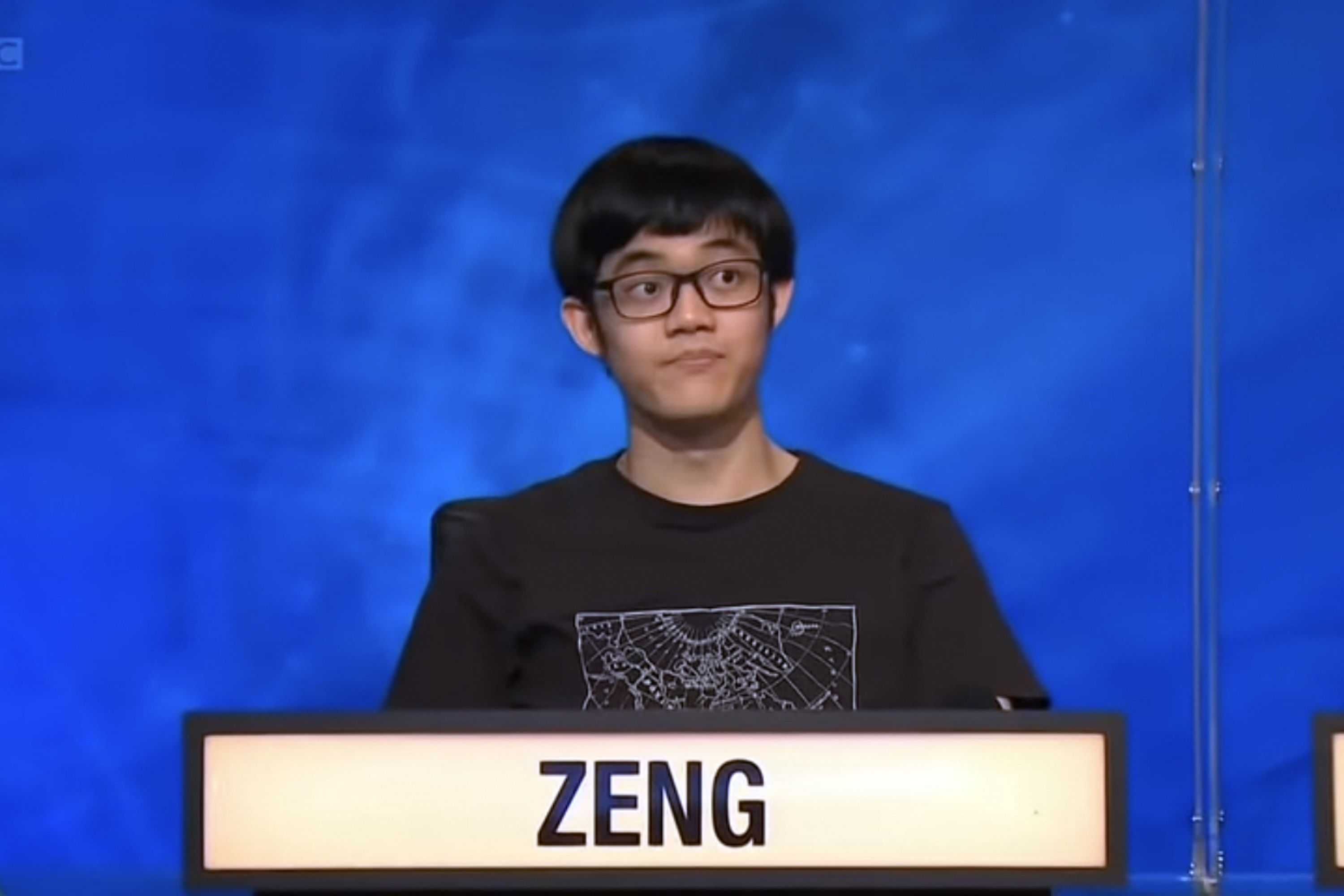I discourage people from cramming, says 'human atlas' Max Zeng of University Challenge fame
Sign up now: Get ST's newsletters delivered to your inbox

Mr Max Zeng, 22, recently shot to social media fame owing to his performance on British television quiz show University Challenge.
PHOTO: SCREENGRAB FROM YOUTUBE
SINGAPORE - People are often dazzled by Singaporean quizzer Maximilian "Max" Zeng's seemingly encyclopaedic knowledge. How does he cram so many facts inside his head?
The answer is: He does not.
"Under the definition of exam-style cramming that many people think I'm very good at - I do not do this," says the third-year biochemistry student at Imperial College in London. "I heavily discourage people from cramming."
Mr Zeng, 22, recently shot to social media fame owing to his performance on British television quiz show University Challenge.
In the BBC Two show, which is avidly followed in Britain, teams of four students from different universities go head to head, challenging their historical, geographical, mathematical and general knowledge.
Mr Zeng first appeared on the show on Sept 13 last year as part of Team Imperial, which qualified for the semi-finals on Feb 14.
His ability to name cities and states in the blink of an eye has earned him nicknames such as "GPS Zeng" or the "human atlas".
"Calling this guy a walking encyclopaedia is an understatement," commented a user on a YouTube video of Imperial's match against King's College London.
Mr Zeng, whose parents both work in the healthcare sector, says he grew up reading atlases.
He estimates that he knows the position of about 10,000 cities or towns on the world map, including human and natural features such as national parks, as well as ancient and historical sites.
He attributes his prowess not to any rote memorisation tactics, however, but a deep fascination with the relationships between people and places.
"I can't deny that memory and lists are important," he tells The Straits Times in an e-mail interview.
"However, the word 'memorisation' usually means something else, especially to an Asian audience, and it's something that I heavily disapprove of. I definitely do 'memorise', but not in the way that people do in school."
Cramming, he believes, is the opposite of actual learning. He decries strategies such as using flashcards - "you're actually getting worse at geography by doing so, by ignoring what the subject is all about".
He says: "Learning the relationships between things is a million times more useful than cramming names, which far too many people do and which I feel the quiz culture unfortunately incentivises. The same is true about the Singaporean and broader Asian education systems."
He maintains that his interest is not in pure geography, but rather in history, anthropology and comparative linguistics, all of which "depend on geography and the interactions of people with the world".
"Geography alone is boring," he says.
He has a reputation as a conservative buzzer. "Maybe other people who take more risks have a more refined thought process, but mine is just a single Boolean if-loop," he says.
The Boolean if-loop refers to a data type in coding, in which an "if" statement provided can be answered only by "true" or "false". Similarly, if Mr Zeng is asked a question he can answer, he responds by buzzing. If he cannot, he will not buzz.
His favourite questions are those that are unpredictable and content-heavy - about the crown lands of Austria-Hungary, stem duchies of mediaeval Germany, former Soviet names of cities, the histories of writing systems and so on.
Unfortunately, he says, these keep being given to other teams in other episodes.
Life has not changed much since he went viral, he says. He has been recognised once or twice at university - "nothing big, though".
Many Singaporean commenters have hailed his success on the show as a product of Singapore's top-notch education system.
"It is (in) moments like this (that) we can be really proud of our Little Red Dot," remarked a viewer on a YouTube video compilation of Mr Zeng answering questions with quiet confidence.
But Mr Zeng would like to temper the nationalistic enthusiasm. "I'm a person, not a nationality. I appreciate the sentiment, but the flag-waving in the comments is a bit overboard."
The worst, he feels, is when Singaporean commenters criticise his teammates for seeming to overlook him in consultation over questions, sometimes going so far as to accuse them of racism.
"People don't know how quiz teams work," he says. "My specialisms are quite narrow and I'm not going to be consulted for answers I don't have.
"I've always felt that there is a persecution complex in Singapore when it comes to foreign countries and societies, but to these people: Please don't project your feelings onto me."
On the other hand, he says, the comments he finds most hilarious are from those who liken his performance to overly simplified geopolitical trends and the "rise of Asia" in some way, shape or form.
He adds: "I think if they knew my political and geopolitical views, they'd be mortified."


